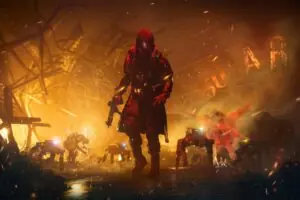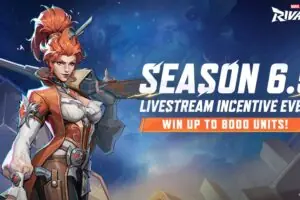The most recent Call of Duty: Black Ops Cold War has a Zombies experience that offers far less experience gained if you’re trying to play solo than if you were playing with others, as the developers have somehow worked out that playing the entirety of the scenario with others (and hoping they aren’t toxic or generally a pain to deal with) is the ideal version of gameplay.
This is thanks to a ‘party bonus’ that encourages players to band together (or more likely, drag their friends through the title) that offers exponentially more experience. Users are frustrated with the consistent leaning from developers, pushing people towards a frustrating multiplayer experience where users are waylaid by griefers all for the sake of ‘user retention’.
Over the past decade or so of gaming, there has been a large and unwavering push into multiplayer from developers.
With good reason, honestly: there’s something fantastic about being able to come out ahead on the back of a miraculous play when you find yourself with a Deagle and three HP in a 1v3 post-plant scenario against those evenly matched with your skill level. Or stepping into a 100 player battle-royale and managing to come out first (without hiding for twenty minutes).
Yet just as these moments are exhilarating and capable of releasing that sweet competitive dopamine, they come with a horrible slew of issues that, by and large, users are simply expected to deal with.
Rampant cheating is prevalent in many competitive titles, forcing developers into a cat & mouse game against cheat developers while everyone is trying to make a buck.
The obscene and absurd levels of toxicity that ebb from every match that offers some form of chat or communication means that you’ll either develop thick skin quick enough to continue to play, or find yourself turned off from multiplayer gaming entirely until the experience fades from memory, and you forget why you uninstalled the title in the first place.
Players attempt to find any exploit to gain the upper hand (remember the Bastion ceiling trick in Hanamura?) and simply wipe teams with no recourse until the developers can be made aware of it and eventually patch it out. Using any type of match finder, regardless of how popular the title is, will seemingly inevitably result in painstakingly long queue times (that increases exponentially the higher-skilled you become).
Try queueing as a DPS for Overwatch, and here’s betting that the DPS queue timers (priority-pass be damned) for whatever and whenever Overwatch 2 releases will be just as long.
This plethora of problems has resulted in a frankly deep echo across gaming scenes: many women gamers struggle to compete against the best of a title as they simply struggle to be accepted by the demographic, resulting in immediate flaming in chats that turns them away from core match-making experiences that other gamers (namely men) don’t need to struggle with. Thus, they tend to continue to play in smaller, close-knit groups that end up ingraining flawed play or don’t as readily punish mistakes.
The number of times that most gamers have experienced frankly disgusting talk within these match-making scenarios is nearly limitless: we all have at least one story of how quickly fun multiplayer matches devolved into horrendous slurs and epithets being launched across a keyboard or Xbox Live voice chat.
Most of us have likely experienced, at the very least, one cheater that has absolutely sullied a match so they could feel better about themself. This isn’t a small issue; it’s widespread and will continue to generate friction as many that participate in gaming are unfortunately humans, and they tend to have enough bad apples to skew the entire experience towards the worse. Further, the bizarre policing attempts from social media frequenters to turn the internet into a safe space has frankly been a losing battle for decades.
Yet throughout all of this, multiplayer seems to be a primary feature for many titles, and developers seem to either not care about the frustrations that many experience, or they are unable to stop the myriad of issues.
Escape From Tarkov, while a delicious delight, is similarly plagued with cheaters and frustrating moments that users can only play against other people (to experience raiders, at least: there is a watered-down mode where some NPCs dot the landscape so you can learn exfils), and every other battle-royale offers an all-or-nothing approach: you either dive in a play against everyone, or you don’t play.
For Honor could have been an absolute blast to play, if it wasn’t for the DDoS attacks whenever someone started losing that would result in everyone disconnecting so whoever was losing would feel better about their lot in life.
If it had a more competent single-player/cooperative experience (that stretched beyond those campaigns that seemed to lose sight of what had players excited for the game) that would readily offer players matches against competent AI with friends, but that would’ve eaten into the bizarre number of microtransactions (over $700 worth) that Ubisoft was trying to push. As it stood, For Honor’s single-player campaign was an odd tutorial for the multiplayer experience that was dashed, as is tradition, by bad actors.
Some titles still do offer a solo/multiplayer experience where users can play against bots with friends and just unwind after a long day; the ones that are offered frankly tend to offer far less substance than if you were otherwise willing to brave the online hazards.
Counter-Strike: Global Offensive has bots that vary on competence yet tend to play the same way across all maps (even if you craft custom scripts, which you should do if this is your preference) but bringing them to the proverbial ‘next-level’ is a frustrating endeavor that bears little fruit: they won’t force-buy or intelligently use utility, they can’t overwatch or properly pie corners, and it’s difficult to bring them up to a level that will actually make them a threat.
Rocket League similarly has bots that allow players to push through single-player seasons as a team; these bots are arguably brain-dead that can’t play a proper corner to save their lives, but they do drive around in circles and whiff with impressive consistency (and get stuck in the goal until you push them out of it).
DOTA 2 also has bots (and brought about custom bot scripts) that will make you get all sorts of sweaty in order to find victory, although it’s similarly plagued by not being able to communicate to your NPC allies for proper baits and ganks. Frankly speaking, DOTA 2 may offer the most competent multiplayer bot experience of everything listed.
In spite of this, there are a vast number of players that still prefer to play titles (even multiplayer-forward ones) in single-player, shelving the titles once they’ve simply consistently outplayed whatever the developers could throw at them. These numbers can be difficult to precisely deduce as those that request developers to further hone the offline experience are quickly stunted by users frustrated with whatever issues the multiplayer aspect is currently dealing with, and the general idea of single-player (or offline) pursuits doesn’t mesh well with the building of and interaction with communities.
Granted, there’s a dang good reason developers have for encouraging players to either play multiplayer, or not at all: player retention is a consistent sticking point for developers, and multiplayer has shown, time and again, to offer a strong consistency so users continue to play whatever title has been offered. They also help encourage microtransactions, and a frankly disappointing number of developers actively match players that don’t use microtransactions with those that do, to encourage more spending.
This isn’t intended to be taken somehow as a strike against multiplayer-centric titles: many of the titles listed within this piece have a fantastic experience that offers intense competition to those that are interested in grinding out some skill and perhaps, one day, becoming the best at the game. Human versus human competition is always a wonderfully endearing endeavor that, with the right mentality and time to dedicate, offers monumental rewards.
But the number of developers that appear capable of recognizing that there is a large audience that only has a few hours to dedicate to games, and would rather not spend that time being tilted off the face of the planet with exploits, cheats, toxicity, and obscene queue times. Perfect Dark figured out moderately-competent FPS bots two decades ago: the industry frankly doesn’t appear to have figured out to push that technology even a single iota further, if they can be inconvenienced to offer it at all.





